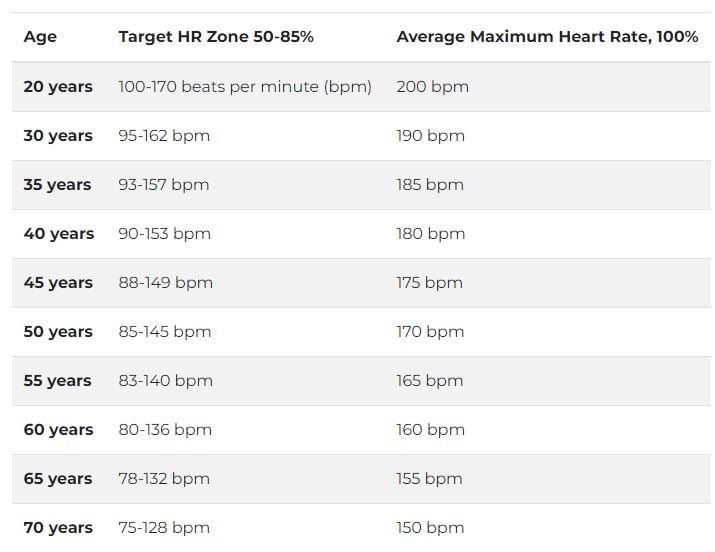-1.jpg?width=795&name=blog%20images%20(6)-1.jpg)
February is American Heart Month
When it comes to your heart, what you eat matters. Since February is American Heart Month, we want to focus on ways you can strengthen your heart with food.
First, let’s take a look at some essential statistics provided by the American Heart Association.
- Heart Disease remains the No. 1 cause of death in the US, according to 2018 data.
- CHD accounted for approximately 13% of deaths in the US in 2018, causing 365,744 deaths
- Heart attacks ($12.1 billion) and CHD ($9.0 billion) were 2 of the 10 most expensive conditions treated in US hospitals in 2013.
- In 2018, stroke accounted for about 1 of every 19 deaths in the US.
- In 2019, there were 6.6 million deaths attributable to cerebrovascular disease worldwide (3.3 million deaths from ischemic stroke, 2.9 million deaths from intracerebral hemorrhage (ICH), and 0.4 from subarachnoid hemorrhage).
- In 2018, there were 95,876 deaths primarily attributable to High Blood Pressure.
- In 2018, the age-adjusted death rate primarily attributable to HBP was 24.0 per 100,000
- Heart disease is one of the most widespread and complicated health challenges in the United States and even around the world. Cardiovascular disease or disorders of the heart and blood vessels accounted for more than 860,000 deaths in the United States in 2017.
Are you wondering how to keep your heart healthy?
To help prevent heart disease, you can:
- Eat healthily.
- Get physical exercise.
- Maintain a healthy weight.
- Quit smoking and avoid secondhand smoke.
- Control your cholesterol and blood pressure.
- Drink alcohol only in moderation.
- Manage stress.
What is a healthy pulse rate? The figures below are averages provided by Heart.org.

What is healthy blood pressure?
Normal blood pressure for most adults is defined as a systolic pressure of less than 120 and a diastolic pressure of less than 80. Elevated blood pressure is defined as a systolic pressure between 120 and 129 with a diastolic pressure of less than 80.
What is the recommended cholesterol level?
The ideal total cholesterol level for an adult is 200 mg/dL or less. Women may have higher levels of HDL than men. The ideal HDL level is at least 40 mg/dL in men and at least 50 mg/dL in women.
Follow these tips for heart-healthy eating
- Eat less saturated fat. Cut back on fatty meats and high-fat dairy products. Limit foods like pizza, burgers, and creamy sauces or gravy.
- Cut down on sodium (salt). Read the Nutrition Facts label and choose foods that are lower in sodium. Look for foods labeled “low sodium” or “no salt added” — like some canned soups, canned vegetables, packaged meals, and snack foods.
- Get more fiber. Eat vegetables, fruits, beans, and whole grains to add fiber to your diet.
- American Heart Association recommends two servings of omega-3 rich foods like salmon each week. A serving size is 3.5 ounces of cooked fish.
- Other omega-3 rich fish choices are lake trout, mackerel, herring, and sardines.
- Oatmeal is a delicious breakfast food and a great source of omega-3 fatty acids. In fact, oatmeal is a fiber superstar, offering 4 grams in every one-cup serving. It also has nutrients like magnesium, potassium, and iron.
- Remember the schoolyard chant: “Beans, beans, good for your heart.” Well, it's true! Beans have lots of soluble fiber, B-complex vitamins, niacin, folate, magnesium, calcium, and, you guessed it, omega-3 fatty acids. Try a bean taco or a cup of chili.
- Nuts have been shown to lower blood cholesterol. And for a heart-healthy nut, almonds are a great choice. Almonds contain plant omega-3 fatty acids, vitamin E, fiber, magnesium, calcium, and heart-favorable monounsaturated and polyunsaturated fats.
- Seeds are a heart-healthy snack and can also be thrown into a salad. These include sunflower seeds, pumpkin seeds, flaxseeds, hemp seeds, and chia seeds.
Some people may find that altering their eating habits can be challenging at first.
Don’t rush into a drastic change all in one day, instead try gradual changes, maybe two to three per week, and start sticking to them. This will help to keep you on track rather than giving up quickly.
Impact Healthcare Sharing offers Telehealth for free with membership but when it comes to heart issues you should always schedule a visit with your general practitioner or if you already have one, your cardiologist.
With other Healthcare Sharing Ministries well visits are not a part of membership and we were excited to add this to membership. To learn more about Impact's sharing guidelines for wellness including yearly screenings and labwork check out our Help Center.
-1.webp?width=795&height=530&name=blog%20images%20(7)-1.webp)
Check out some ideas on how to stay active when it's dark outside.

-1.jpg?width=300&name=blog%20images%20(6)-1.jpg)
